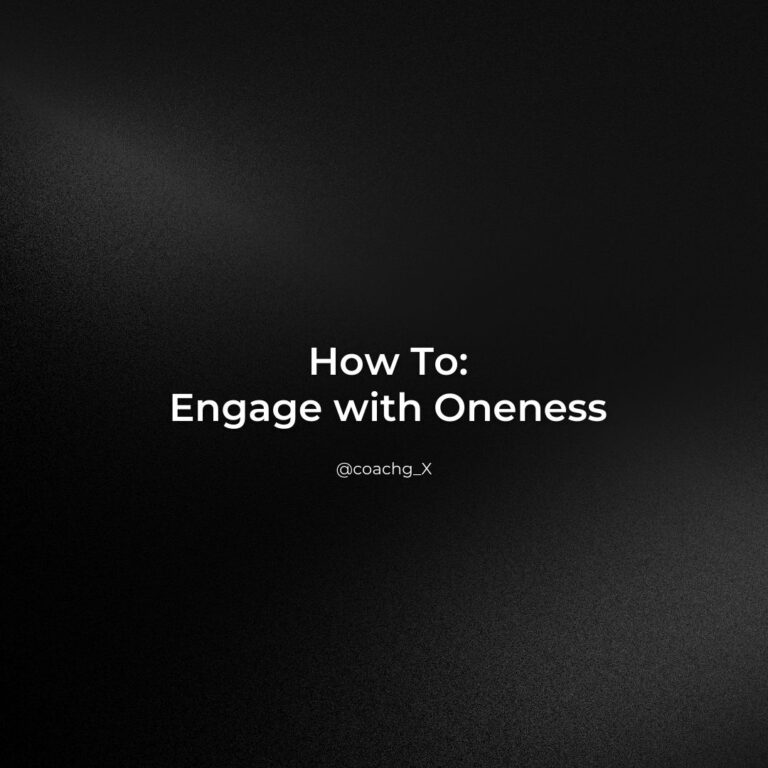
Using Quantum Psychology to Find Connection and Belonging
In this world that often feels divided, loneliness has become an almost universal experience. Many people, whether surrounded by others or physically alone, feel isolated and disconnected. Quantum psychology offers a powerful perspective to transform these feelings by encouraging us to engage with the concept of oneness, the understanding that we are all part of a greater whole, intricately connected to each other and the universe.
Quantum psychology teaches that separation is largely an illusion created by our minds and societal conditioning. By consciously recognizing and experiencing our interconnectedness, we can break down the barriers that keep us feeling isolated. Here, we’ll explore practical ways to use the principles of quantum psychology to engage with oneness, foster a deeper sense of connection, and ultimately find belonging and purpose.
1. Understanding Oneness in Quantum Psychology
Oneness is a foundational concept in quantum psychology, rooted in the idea that all things are interconnected. Quantum theory itself suggests that particles are entangled and that actions on one particle can impact another, even if separated by vast distances. Extending this principle to the human experience, quantum psychology posits that we are not isolated beings but part of a greater, unified field of consciousness. This means that, at a fundamental level, we are deeply connected to each other and the universe.
When we view ourselves as separate from others, we often experience feelings of loneliness, self-doubt, and fear. However, acknowledging oneness allows us to tap into a larger consciousness, reducing these feelings of isolation. This connection fosters a sense of purpose, reinforcing the idea that we each contribute to a larger whole. The sense of belonging that comes from understanding oneness can be transformative, especially when battling feelings of loneliness or disconnection.
2. Shifting Perception from Separation to Connection
Our minds are conditioned to see ourselves as separate entities, distinct from others. This conditioning can lead to self-centered thoughts and a sense of isolation. Quantum psychology encourages us to shift this perception by actively recognizing and valuing our interconnectedness. One way to do this is through mindful reflection.
Mindful Reflection Exercise:
Take a few moments each day to reflect on the people and nature around you. Observe others with curiosity and empathy, noticing how similar we all are at our core. Reflect on shared emotions, needs, and experiences. This practice can gradually dissolve the mental walls that keep us feeling separate.
Additionally, try focusing on your impact. Every thought, action, and emotion you experience influences the people around you. By recognizing the ripple effect of your actions, you become more conscious of your role within the greater whole, reinforcing your sense of connection.
3. Experiencing Connection Through Empathy
Empathy is a natural gateway to oneness. When we empathize with others, we momentarily dissolve the boundaries of self and connect on a shared emotional level. Quantum psychology suggests that practicing empathy can help us experience oneness in a tangible way, bridging the gap between self and others.
Empathy Practice:
Throughout your day, observe others and imagine what they might be experiencing. If someone seems upset, recognize that you, too, have felt sadness. If they seem joyful, acknowledge that you, too, know joy. This mental practice helps you feel empathy, deepening your understanding of the shared human experience. Over time, this exercise fosters a sense of unity, helping reduce loneliness and promoting compassion.
4. Connecting with Nature as a Reflection of Oneness
Nature provides a powerful reminder of our interconnectedness. Every element in nature—trees, animals, rivers, and weather, exists in harmony, contributing to a balanced ecosystem. Spending time in nature can be a grounding experience that reinforces oneness, offering a direct connection to something larger than ourselves.
Nature Meditation Exercise:
Find a quiet spot in nature, like a park or a garden, and sit or stand comfortably. Close your eyes and take a few deep breaths, then gradually shift your focus to the sounds, smells, and sensations around you. Notice the movement of the wind, the sounds of birds, or the feel of the earth beneath you. Visualize yourself as part of this ecosystem, connected to the trees, air, and ground. By recognizing yourself as part of nature’s web, you can experience a profound sense of belonging.
5. Practicing Gratitude as a Pathway to Oneness
Gratitude can be a powerful tool in cultivating oneness. By focusing on gratitude, you can become more aware of the countless connections that make up your life. Expressing gratitude for the people, resources, and experiences around you shifts your focus from lack to abundance, fostering a sense of connection to the world.
Gratitude Exercise:
Each day, make a list of three things you’re grateful for that connect you to others or the environment. This could be a conversation with a friend, the food you eat, or even the sun shining outside. Reflect on how each item represents a connection to something beyond yourself. Practicing gratitude in this way reinforces your awareness of oneness and helps dissolve feelings of isolation.
6. Acknowledging Your Role in the Greater Whole
One of the most empowering aspects of oneness is the realization that each of us has a role within the collective. Quantum psychology suggests that every individual contributes to the overall consciousness and energy of the universe. By understanding your purpose and embracing your role, you cultivate a deeper sense of meaning and belonging.
Reflection Exercise on Purpose and Belonging:
Take time to reflect on how your unique qualities and experiences contribute to the world around you. Consider ways in which your actions, skills, or ideas benefit others. Recognize that you are part of a greater purpose and that your existence adds value to the collective experience. This acknowledgment can significantly reduce feelings of loneliness, as it connects you to the broader tapestry of life.
7. Embracing Oneness as an Ongoing Practice
Engaging with oneness is not a one-time exercise but a continuous practice. Every day presents opportunities to break down the illusion of separation and deepen our connection to others. By incorporating these practices into your routine, you can gradually foster a mindset of oneness, reducing feelings of loneliness and reinforcing a sense of belonging.
It’s important to remember that engaging with oneness doesn’t erase individual identity; rather, it expands your sense of self to include others, nature, and the universe. This expanded awareness can be both grounding and freeing, allowing you to experience a deeper connection to life itself.
Quantum psychology’s concept of oneness invites us to look beyond the illusion of separation and embrace the understanding that we are all part of a greater whole. By actively practicing connection through empathy, nature, gratitude, and purpose, we cultivate a life rich in belonging and meaning. Engaging with oneness can be a powerful antidote to loneliness, helping you feel grounded, purposeful, and truly interconnected with the world around you.
As you continue to explore these practices, remember that each step toward oneness strengthens not only your sense of self but also your connection to the vast, interconnected web of life. You are never alone; you are a part of something greater.
Let’s Keep the Growth Going
You’ve come this far for a reason. Stay connected and receive insights that meet you where you are—right in your inbox.
- Join our Newsletter -
Share:




